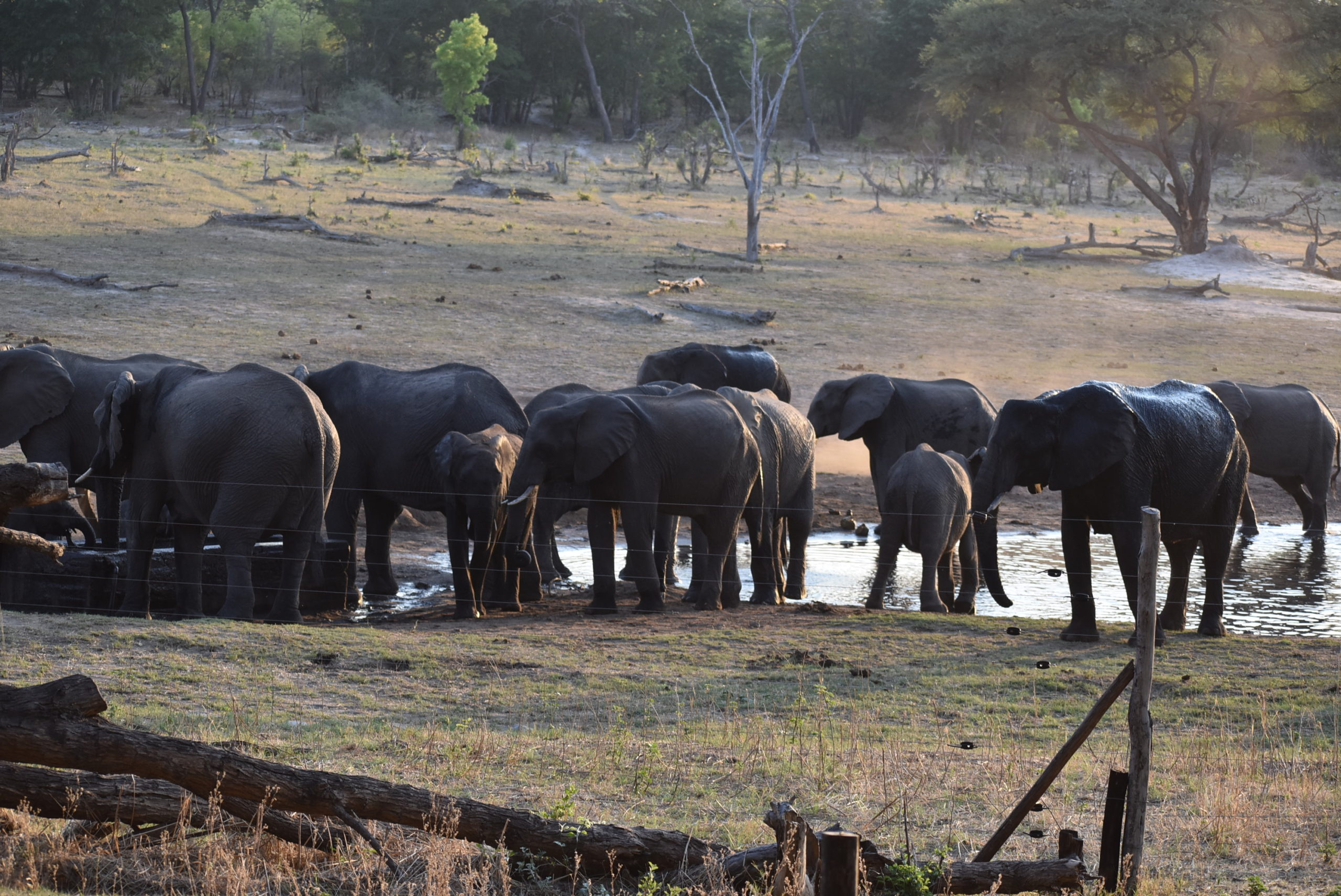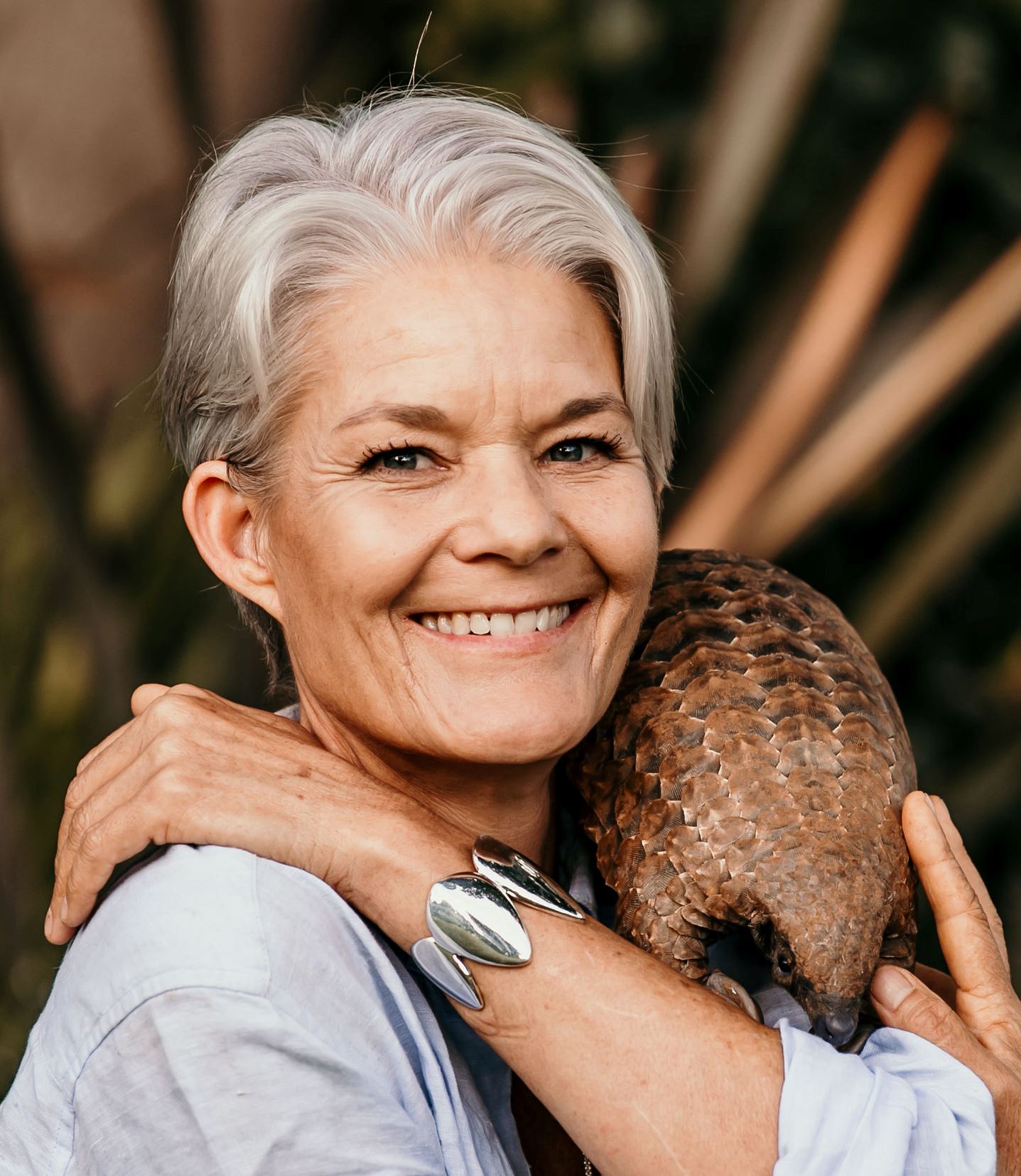Groundbreaking Workshop on AI and Technology-Facilitated Gender-Based Violence at AWiM24
Trending
Saturday May 31, 2025
Trending

Harare
Zimbabwe’s wildlife landscape is endowed by different animal species, beautifying its environment, yet due to the increasing number of unlicensed animal poachers- the wildlife’s existence is threatened. According to wildlife reports, poachers and wildlife traders kill approximately 30,000 African elephants every year.
A United Nations 2030 Agenda for Sustainable Development report, says that despite 15 per cent of the land protected, biodiversity is still at risk. The UNDP 2021 report, states that approximately 7,000 species of animals and plants are traded illegally.

“Wildlife trafficking not only erodes biodiversity but causes insecurity, fuels conflict and feeds corruption,” says Lisa Hywood of the Tikki Hywood Foundation.
The female-led Tikki Hywood Foundation is one of Zimbabwe’s animal conservation organisations that thrives to bring awareness and sustainable protection of endangered species.
Lisa Hywood, founder of the foundation says, “Wildlife is Zimbabwe’s ecological heritage, but the effects of the deadly pandemic, ‘Covid-19’ has exposed the multi-faceted crisis that has severely affected wildlife conservation revealing the already existing challenges that have threatened wildlife existence in the form of illegal wildlife poaching and trading.”
“A drop in funding for conservation, monitoring staff laid off led to an increase in poachers involved in illegal wildlife trade, locals in wildlife areas have been making efforts for the conservation of biodiversity,” Hywood tells AWiM.
The Tikki Hywood Foundation is a wildlife non-governmental organization based in Zimbabwe that specializes in the conservation of wild animals, especially endangered species such as the pangolin.
Founded in 1994, the conservation organization-founding member Lisa Hywood says it aims to create awareness and respect for all wildlife.
“The Tikki Heywood Foundation Zimbabwe rescues, rehabilitates and protects wildlife creatures. Creating awareness to prevent illegal wildlife trade of the wild animals that are poached and trafficked as pets from Africa to Europe or Asia or killed for their meat, bones and skin,” Lisa Hywood tells AWiM News.
The foundation says it is in partnership with other wildlife conservation NGOs across Africa, such as the Africa Parks has projects for the protection and conservation of wild animals that might be at risk of being trafficked.
“We are working to secure the future of wild animals that are targeted for trafficking such as pangolins to secure their future against extinction as a result of trafficking and poaching. We work in the rescue, rehabilitation and release into the wild and secure their chances of survival after a rescue,” Hywood tells AWiM News.
An International Women’s Day report says African women have been advancing their careers in science and conservation. Across the continent in South Africa, Kenya and Zimbabwe- women have gradually become the game changers in their communities on wildlife conservation.
Along the Zambezi River basin, in Binga District south-east of Lake Kariba, in Matebeleland North Province a group of female villagers led by Beatrice Mawire, 62, calling themselves the ‘Tigers’ educate other members of the community on wildlife conservation and biodiversity preservation.
The women are always on high alert against poachers and wildlife traders who are often heavily armed. Mawire and other nine women in the Tonga community say they received training offered by environment conservation non-governmental organizations that aim to reduce poaching and wildlife trade.
They wear T-shirts and caps that warn and caution on the dangers of wildlife trade and poaching as well as the protection of biodiversity for sustainable development.
“In 2020 we received training and we were awarded certificates on wildlife conservation by an NGO, Environment Africa. We understand that standing against heavily armed poachers is a high risk but we are on guard for the conservation of our biodiversity. We work with the Zimbabwe National Parks and Wildlife game rangers, and we notify them of any information that we can gather in the communities tracking the movement of poachers,” Mawire tells AWiM News.
She says that locals in the wildlife communities, unemployed and desperate to make a living do not understand that excessive taming of the wild animals leads to the extinction of some animal species. Some assume that the existence of animals in the wild is a natural process that does not need conservation. Lack of awareness in communities of the ecological benefits of some animal species could result in environmental disasters.
“Apart from poaching, there is also an entire illegal wildlife trade that goes on which involves selling live animals for the pet trade, body parts, [lion bones, teeth and claws, crocodile and python skins and pangolins scales] to Asian markets. The driving factors may be economically motivated, but the global syndication of illegal activities could also be motivated by lack of presence of monitoring authority due to the global pandemic,” says Mawire.
In Zimbabwe, helpless against humans- many animals such as the pangolin have their existence threatened by poachers and wildlife traders hunting them for their scales.
African countries, including Zimbabwe, were exposed to Asian cultures that have different beliefs on animal conservation and the exploitation of wild animals, influencing the illicit trade of wildlife poaching and trafficking for job seekers in Africa.
Catalyzing a community to change behaviour,
But women have been taking a leading role in wildlife conservation, working towards skills training to prevent the illegal trafficking of endangered species.
Environment Lawyer, Tinashe Mutezo tells AWiM News that in Zimbabwe, “Wildlife is our heritage and needs the protection by all citizens and has been working in collaboration with the Tikki Hywood foundation on anti-poaching awareness campaigns capacitation of the authorities through training members of the community particularly women so that they can become guardians of the environment.
“Billboards and posters in towns and airports informing all Zimbabwe visitors that wildlife trafficking is a crime have been publicised. There is also a Hotline number that has been publicised for whistle-blowers to report on poachers and wildlife traffickers so that we work towards protecting the environment and preventing ecological catastrophes,” says Mutezo.
“Women are transforming their communities through wildlife conservation. They are playing an increasing role in biodiversity preservation of animal and plants species,” Mutezo says.
Africa’s Action Plan
Zimbabwe is a signatory to the United Nations Sustainable Development Goals. Sustainable Development Goal 15- Life and Land aim to protect, restore and promote sustainable use of ecosystems, manage forests, combat desertification, and halt biodiversity loss.
According to the UNDP 2021 report, “Biodiversity and the 2030 Agenda for Sustainable Development’, women in many developing countries are the principal users and managers of land, as farmers and pastoralists. Their role in promoting sustainable land management is an opportunity to achieve the dual objective of sustainable land management and gender equality.
“Women can contribute to the management of forests, mountain resources, and rivers, but they are often excluded from decision-making, including at the local and community levels. There is a need to better integrate gender considerations into National Biodiversity Strategies and Action Plans,” read the UNDP report.
In Zimbabwe, The Ministry of Environment, Tourism and Hospitality says it is making legislative review processes to harmonise principles of sustainable utilisation of the wildlife through balancing conservation benefits with the needs and expectations of the people who live with wildlife.
Deputy Minister in Ministry of Environment, Tourism and Hospitality Barbra Rwodzi says Zimbabwe adopted the National Development Strategy 1, guided by the Vision2030 policy document aimed at providing sustainable management of the environment, and promoting rapid economic development.
The 5th United Nations Environment Assembly that aimed to strengthen actions for nature to achieve Sustainable Development Goals last month held a meeting that concluded with 14 resolutions aimed at curbing pollution protecting and restoring nature worldwide.
Part of the resolutions, in the spirit of the UN Decade for Ecosystem Restorations- a third resolution agreed by the Assembly focuses on nature-based solutions: actions to protect and restore sustainability use and manage ecosystems. The resolution calls on UNEP to support the implementation of such solutions, which safeguard the rights of communities and indigenous peoples.
Executive Director of the United Nations Environment Program, Inger Anderson during the UNEP meeting said it is critical to have a universally agreed definition of nature-based solutions.
“When countries and companies claim that their actions are supporting nature-based solutions, we can now begin to assess whether this is accurate and what it entails. This is especially true given the just-released report by the Intergovernmental Panel on Climate Change on the need to scale-up adaptation, for which nature-based solutions will be crucial.”
Working towards the protection and conservation of wildlife, early this year, the Tikki Hywood Foundation signed a ten-year memorandum of understanding with the National Prosecuting Authority, Zimbabwe. The MoU acts as a regulation of laws to protect endangered animals, penalize wildlife crimes, and prosecute wildlife traffickers.
An environmental lawyer with the Tikki Hywood Foundation says everyone has the responsibility to stop the illegal wildlife trade.
“Wildlife is our heritage and needs protection by all citizens. As Tikki Hywood Foundation, we have created awareness across Zimbabwe to publicize that the wildlife trade is a crime. There is a hotline number that has been set up for whistle-blowers to report on poachers and wildlife traffickers,” Mutezo tells AWiM News.
This article is part of African Women in Media (AWiM)/UNEP Environment Journalism Programme
Do you want to republish this article? Contact janet@africanwomeninmedia.com
We’re not gonna spam. We’ll try at least.

Copyright 2020. African Women In Media
Copyright 2020. African Women In Media
Recent Comments